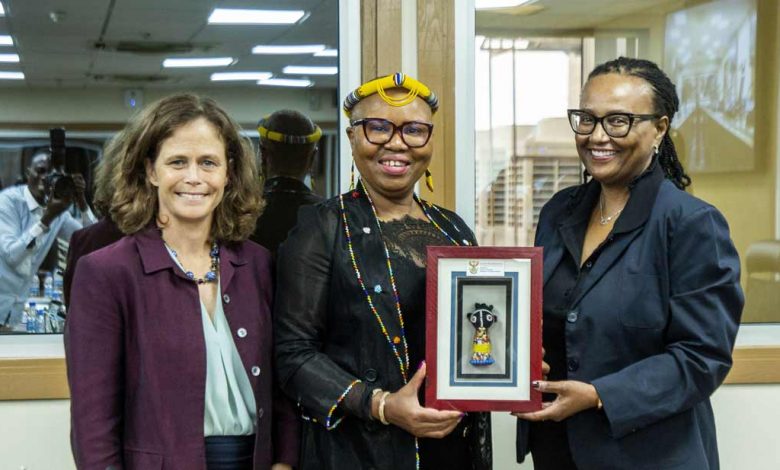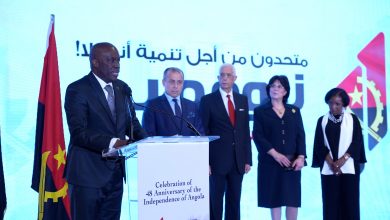South Africa prioritizes social entrepreneurship as key to Africa’s social development minister says during visit to African Development Bank | African Development Bank

Diplomat.Today
The African Development Bank
2023-05-20 00:00:00
——————————————-
South African Social Accord Minister Lindiwe Zulu and Senior Vice President of the African Development Bank (AfDB), Bajabulile Swazi Tshabalala, agree that helping Africans acquire the skills to start and scale businesses is critical to building resilience.
Minister Zulu led a 10-person delegation on May 16 for a courtesy visit to Tshabalala and Beth Dunford, the African Development Bank’s Vice President for Agriculture, Human and Social Development, at the bank’s headquarters in Abidjan.
The bank’s Director of Human Capital, Youth and Skills Development, Martha Phiri, and other members of the Agriculture, Human and Social Development complex were also present.
Discussions focused on ways to increase opportunities for young people and women, the lessons of Covid-19 and the role South Africa can play in driving social security roll-out across Africa.
“The whole continent needs comprehensive social security for its citizens,” Zulu said. Of course we have to start with our own country and then do SADC.” She said the Covid-19 pandemic has hit the middle class hard, prompting the government to decide to provide grants of R350 ($18.35) to those who lost their jobs and then to those who were unemployed , to include.
Zulu said the ministry prioritized social entrepreneurship as a long-term strategy for South Africans.
Vice President Dunford agreed, saying: “We are really thinking about giving people the skills they need to drive the transformation of the country with ingenuity, energy, the resources they have, and to create their own ideas to really push the private sector forward, what’s next.”
The bank aims to provide youth and women with the skills and resources necessary for entrepreneurship, Dunford added. She cited the Bank’s planned Youth Entrepreneurship Investment Banks program and Affirmative Finance Action for Women in Africa initiative as examples.
Director Phiri pointed to the iDice initiative in Nigeria as another example of the bank’s commitment to supporting African youth. Working with partners, the $618 million iDice initiative will support more than 200 Nigerian technology and creative start-ups, including non-financial services.
“We believe we have a comparative advantage in post-secondary education,” Phiri said. She added: “With regard to technical and vocational training, we are providing infrastructure support to expand access rates. At the moment, access rates are below 20% and that is unacceptable.”
Finally, Tshabalala said the Bank’s High-5 operational priorities influenced project value addition. “I think what we’re doing is unique is we understand in all these 5 areas that you don’t just build a road that goes from one place to another. You think about what agriculture I can do there, what industrial activity I can put there. Do I have to put telecommunication cables in there, can I put some training in it during the construction of the project and afterwards? What role can I give to women and children there?”
She stressed that fragility is a problem in all African countries and that it should be taken into account in project planning.
Tshabalala also expressed hope that the issues discussed at the meeting could be recorded to inform the bank’s Country Strategy Paper (CSP) for South Africa. The CSP is currently being prepared.
In Abidjan, the South African delegation also met representatives of the Ivorian government.
——————————————-



